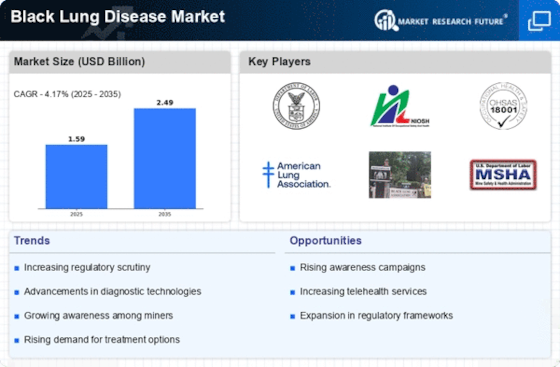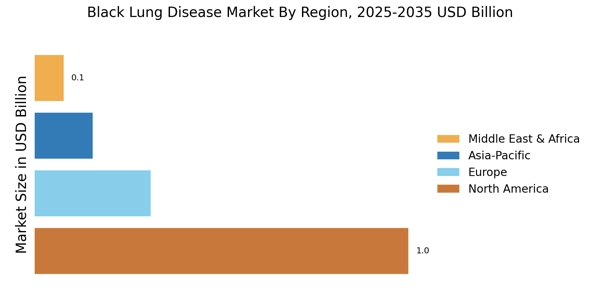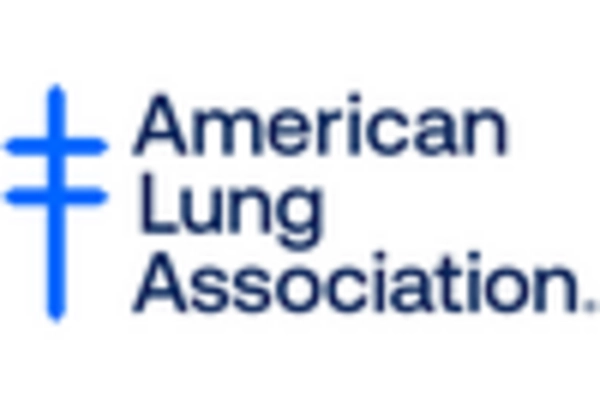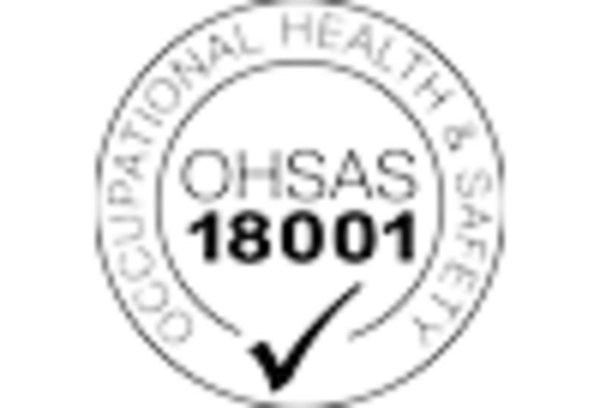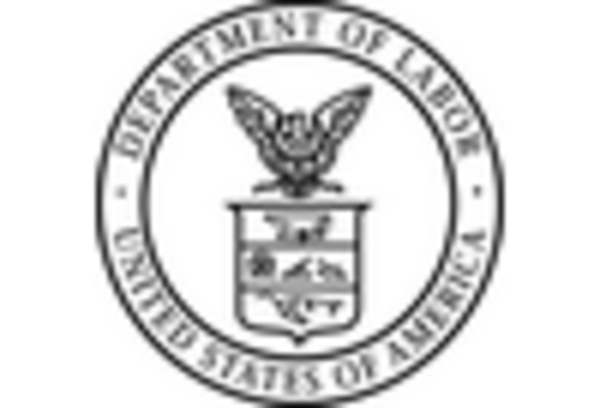Rising Healthcare Expenditures
The rising healthcare expenditures associated with managing chronic diseases, including Black Lung Disease Market, appear to be a significant driver for the Black Lung Disease Market. As healthcare costs continue to escalate, there is a growing emphasis on providing comprehensive care for affected individuals. This trend may lead to increased investments in healthcare infrastructure and services tailored to the needs of Black Lung Disease Market patients. Moreover, the financial burden of managing this condition can prompt policymakers to allocate more resources towards prevention and treatment initiatives, thereby fostering growth within the Black Lung Disease Market.
Advancements in Medical Technology
Technological advancements in medical diagnostics and treatment options are expected to significantly influence the Black Lung Disease Market. Innovations such as improved imaging techniques and novel therapeutic approaches may enhance the ability to diagnose and manage the disease effectively. For example, the development of advanced pulmonary function tests and imaging modalities can lead to earlier detection and better patient outcomes. As healthcare providers adopt these technologies, the market for Black Lung Disease Market solutions is likely to expand. Furthermore, the integration of telemedicine in patient care could facilitate access to specialists, thereby increasing the demand for services within the Black Lung Disease Market.
Government Regulations and Policies
Government regulations and policies aimed at protecting miners' health are likely to play a crucial role in shaping the Black Lung Disease Market. Legislative measures that enforce stricter safety standards in coal mining operations may lead to a decrease in new cases, but they also create a demand for better diagnostic and treatment solutions for existing patients. For instance, the implementation of the Mine Safety and Health Administration's regulations has prompted mining companies to invest in health monitoring programs. This regulatory environment fosters innovation and drives market growth as companies seek to comply with new standards while ensuring the well-being of their workforce.
Rising Incidence of Black Lung Disease
The increasing incidence of Black Lung Disease Market among coal miners appears to be a primary driver for the Black Lung Disease Market. Recent data indicates that the prevalence of this condition has surged, with estimates suggesting that thousands of miners are affected annually. This rise in cases necessitates enhanced medical interventions and support services, thereby expanding the market. The growing recognition of the disease's impact on miners' health has led to increased demand for diagnostic tools and treatment options. Consequently, healthcare providers are likely to invest more in research and development to address this pressing issue, further propelling the Black Lung Disease Market.
Increased Public Awareness and Education
The growing public awareness and education regarding Black Lung Disease Market are likely to drive the Black Lung Disease Market. Campaigns aimed at educating miners and their families about the risks associated with coal mining and the importance of early detection may lead to increased screening and treatment rates. This heightened awareness can result in more individuals seeking medical assistance, thereby expanding the market for diagnostic and therapeutic services. Additionally, advocacy groups are actively working to promote research funding and support for affected individuals, which may further stimulate growth in the Black Lung Disease Market.


